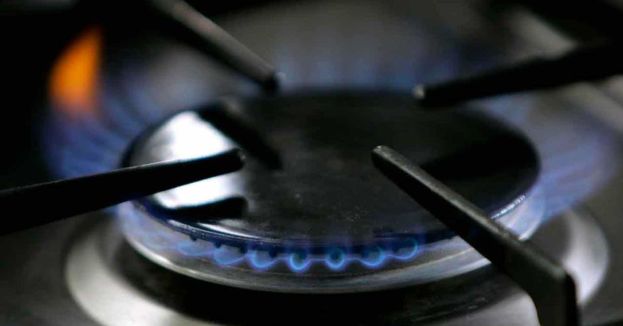The rules, which are set to take effect in early 2028, were issued on Monday after nearly a year of feedback from consumer advocates, industry associations, and climate activist groups. However, the administration has stepped back from a more aggressive proposal issued last year that drew substantial criticism.
The finalized regulations reflect a compromise recommendation issued last year by stakeholders, including the Association of Home Appliance Manufacturers (AHAM), the leading U.S. trade group representing appliance makers. "President Biden is committed to using all the tools at the Administration's disposal to lower costs for American families and deliver healthier communities — including energy efficiency measures like the one announced today," Energy Secretary Jennifer Granholm stated.
WATCH: SPEAKER JOHNSON CALLS ON COLUMBIA UNIVERSITY PRESIDENT TO RESIGN![]()
Granholm further emphasized the DOE's dedication to working with industry partners and stakeholders throughout 2024 to continue strengthening appliance standards. She noted that this would address a backlog of Congressionally-mandated energy efficiency actions that are delaying a projected $1 trillion in consumer savings from reaching the American people.
WATCH GREAT ANALYSIS: THE ABSURDITY OF ANTI-ISRAEL PROTESTS![]()
The DOE's original proposal, issued on Feb. 1, 2023, was set to take effect in 2027 and would have impacted a staggering 50% of current gas stove models. The DOE argued that such regulations were required under the Energy Policy and Conservation Act, which mandates energy efficiency rules while preserving consumer choice.
A CRYING SHAME: PRO-PALESTINIAN PROTESTS FORCE USC TO CANCEL PRIMARY GRADUATION EVENT![]()
January 30, 2024
This proposal, however, was met with strong opposition from Republicans and consumer advocacy organizations. They criticized the Biden administration for limiting consumer choice and promoting a regulatory regime that would lead to higher prices. They also accused the DOE of attempting to force Americans to electrify their homes in an effort to reduce emissions and combat global warming.
REPUBLICAN SENATORS EXPOSE DARK SIDE OF 'FOOD DELIVERY' ECONOMICS![]()
In response to this backlash, the House passed the Save Our Gas Stoves Act on a bipartisan basis in a 249-181 vote in June. This bill, which has yet to receive a Senate floor vote, would block the DOE from implementing tougher conservation standards on stoves.
HARVEY WEINSTEIN'S CONVICTION OVERTURNED IN NEW YORK! WHAT'S NEXT FOR THE DISGRACED MOVIE MOGUL?![]()
In September, AHAM and other industry groups opposed to the February 2023 proposal released a compromise proposal with climate advocates. This proposal recommended less aggressive energy efficiency targets for stovetops and other appliances. The DOE scrapped its proposal last year in favor of this recommendation.
SEE TO BELIEVE: COMING SOON TO A KID'S DRAG SHOW NEAR YOU...(WATCH)![]()
"We were able to settle on energy levels that would retain the features and performance that consumers rely on every day. We were also able to adjust or modify the timelines that the Energy Department was suggesting," Jill Notini, a spokesperson for AHAM, told Fox News Digital on Monday.
MSNBC'S CHRIS HAYES DELETED TWEET SPARKS A SH*T SHOW![]()
The finalized rules ban the sale of stoves that consume more than 1,770 thousand British thermal units (kBtu) per year, a significant change from the 2023 proposal, which would have banned the future sale of gas stoves that consume more than 1,204 kBtu per year. While last year's proposal would have impacted 50% of gas stove models, the finalized regulations impact just 3%.
SO ONE-SIDED: OF COURSE THIS ISN'T MAKING HEADLINES ANYWHERE ELSE!![]()
Despite the compromise, some consumer advocates expressed concern that the finalized rules did not include enough consumer input and criticized the DOE's overarching authority to issue such regulations. "A reasonable regulation is better than an unreasonable regulation," Ben Lieberman, a senior fellow at the Competitive Enterprise Institute, told Fox News Digital in an interview.
"But, on applying standards, I think there should be no efficiency regulations and certainly no regulations that may discourage gas stoves," Lieberman added. He suggested that the ultimate goal should be to repeal the regulatory authority and put consumers in charge once again.








 Discover alternative ideas that will make you think
Discover alternative ideas that will make you think Engage in mind bending debate
Engage in mind bending debate Earn points, rise in rank, have fun
Earn points, rise in rank, have fun


